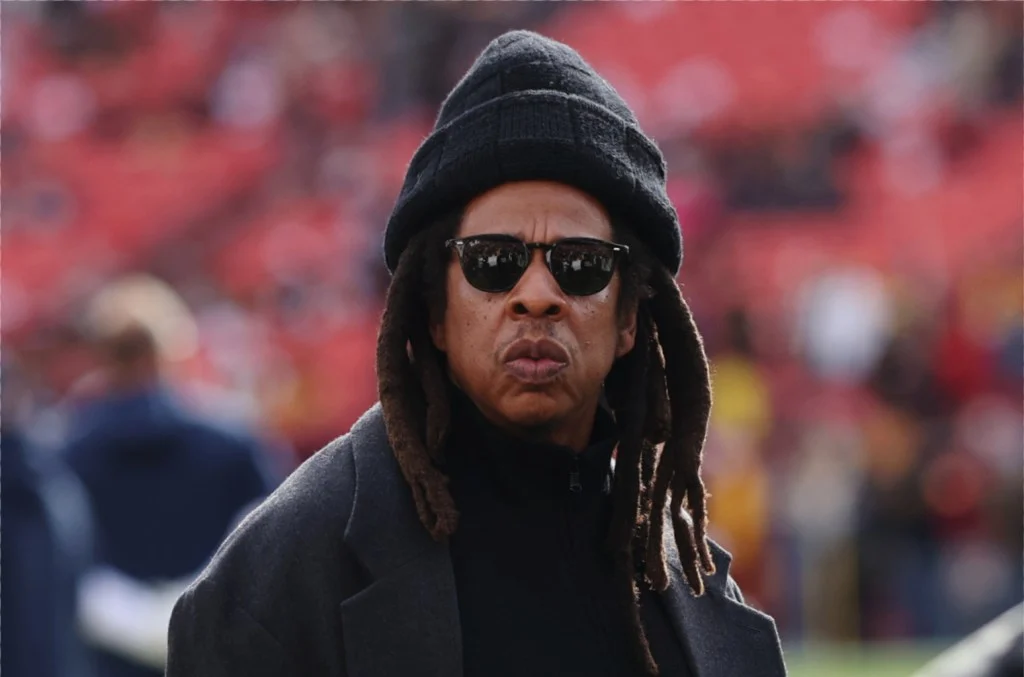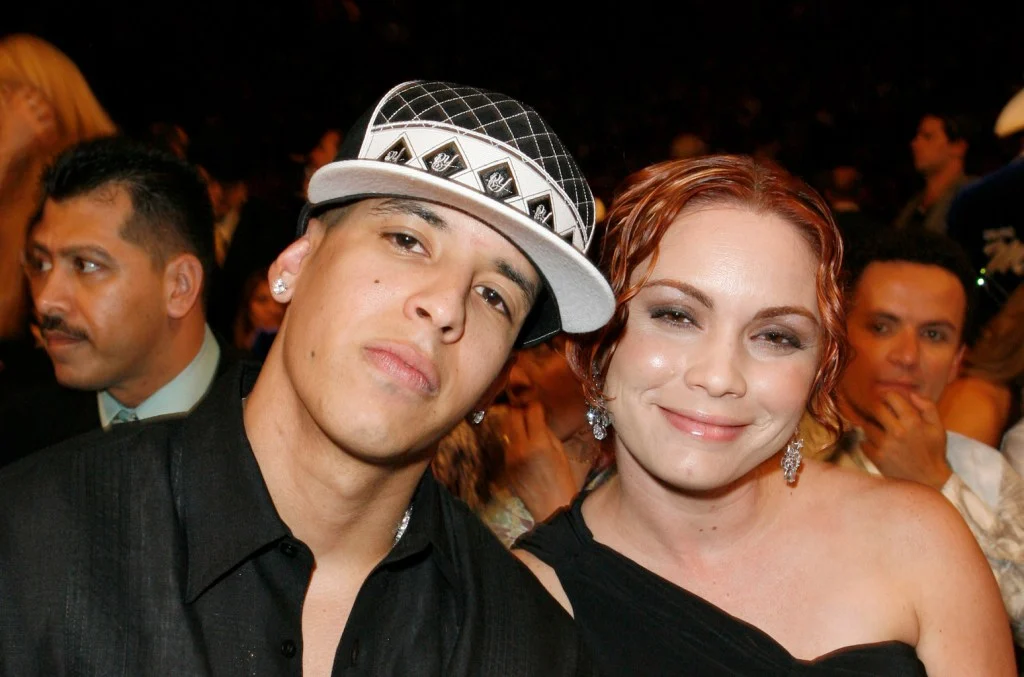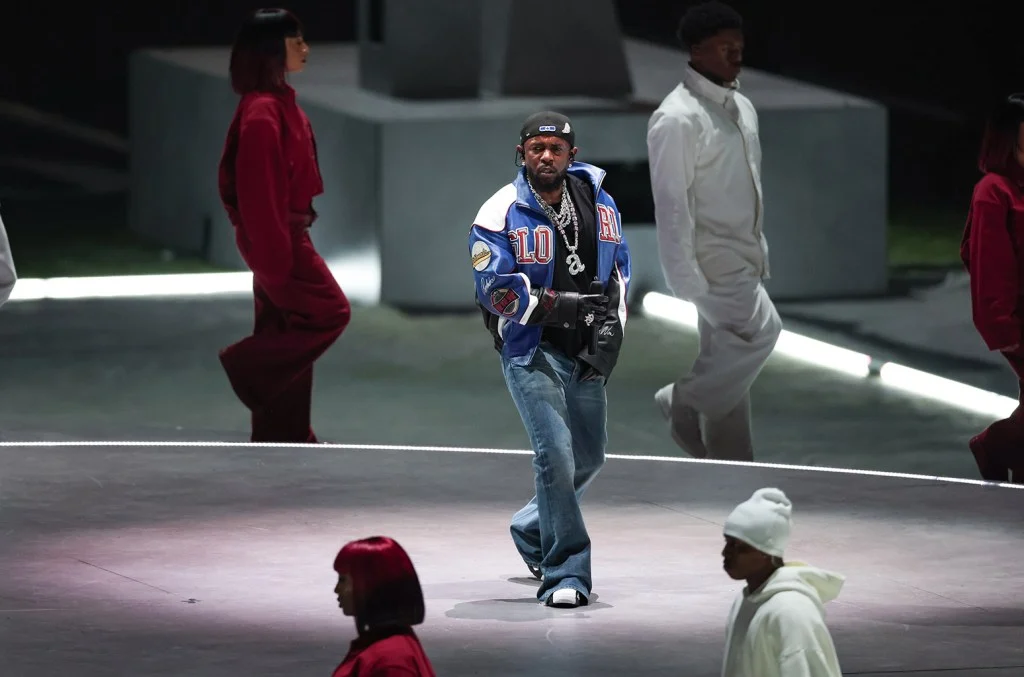Lawsuit
Page: 11
Jay-Z’s rape accuser says in court filings that she stands by her story, directly contradicting his recent lawsuit that claims she admitted to fabricating the allegations — prompting the star’s lawyers to offer testimony from private investigators and demand that the accuser sit for a deposition.
In Los Angeles court filings Monday (March 3), the unnamed Jane Doe stated that she had flatly refused to recant her story when approached last month by investigators for Jay-Z — an experience she said left her “intimidated and terrified.” She also denied that her attorney, Tony Buzbee, had pushed her to sue.
Those statements, which Doe made in a sworn affidavit, directly contradicted allegations leveled by Jay-Z (Shawn Carter) in a separate lawsuit filed earlier on Monday. In that case, he claimed Doe had “voluntarily admitted” directly to his team that her now-dropped lawsuit was premised on a false accusation.
“Although I ultimately chose not to pursue them, I stand by my claims in the New York action and believe that I had a meritorious claim against Jay-Z,” the woman wrote in Monday’s filing. “I ultimately decided to dismiss the [case] because I was frightened by the reaction of Jay-Z and his supporters, and the likelihood that I would have to be publicly named and subjected to public attacks.”
In the same sworn statement, the unnamed woman stressed that Buzbee had not sought her out, nor had he urged her to add Jay-Z to her allegations: “I told them that neither of those things ever happened, and I asked them to leave me alone.”
Monday’s statement from Doe quickly prompted a response from Jay-Z’s lawyers. In a flurry of new filings on Wednesday (March 5), they offered up sworn statements from the actual private investigators who allegedly talked to her, asking the judge for permission to add them to the case record.
In those statements, one of the investigators said, “Jane Doe stated to me that Mr. Carter did not sexually assault her.” At another point, the same investigator added: “Jane Doe stated ‘Buzbee brought Jay Z into it,’ and ‘he was the one that kind of pushed me towards going forward with him.’” Another investigator said Doe had told him that “lawyers at Mr. Buzbee’s law firm told her that, if she pursued Mr. Carter, she would get a payout.”
In the same filings, Jay-Z’s lawyers also made an alternative request: that the judge permit them to depose both the accuser and Buzbee under oath. “The new declaration only further reinforces the need for Jane Doe and Mr. Buzbee to sit for a deposition regarding their conversations, including her conversations with his colleagues who convinced Jane Doe to drop her lawsuit,” they wrote.
Depositions are not typically granted at the outset of such a case; instead, they are conducted during the later “discovery” phase as a case moves toward trial. But Jay-Z’s lawyers say Doe’s filing has opened the door to those issues and that the rapper is now “entitled to find out” what the woman knows.
In a detailed statement to Billboard on Wednesday, Buzbee strongly denied the various claims advanced by Jay-Z’s investigators in the new court filings. He said he believes they “flat out made all of this up” and that he “can’t wait to see what they have been paid and who is paying them.”
“Jane Doe’s case was signed up in October by another law firm to pursue allegations against Jay-Z and P. Diddy. Apparently it came in through Facebook to that firm’s page. After it was vetted it was sent to my firm weeks later,” Buzbee said. “The allegation that I sat with Jane Doe and suggested a suit against Jay-Z is not only a lie, it’s proveably and demonstrably false and is contrary to the documentation from referring counsel’s intake process and our own firm documents.”
The blockbuster case against Jay-Z, filed in December, claimed that he and Sean “Diddy” Combs drugged and raped a 13-year-old girl at an after-party following the 2000 MTV Video Music Awards. It represented a shocking expansion of the already-sprawling claims against Combs and came amid speculation that other stars might be implicated in Diddy’s alleged decades of abusive behavior.
Jay-Z forcefully denied the allegations, calling them a “blackmail attempt.” He accused Buzbee of trying to extort settlements from innocent celebrities by falsely tying them to Diddy and vowed to fight back and never pay his accuser.
Last month, Doe abruptly dropped the case — without explanation and without any kind of payment from Jay-Z. Two weeks later, Jay-Z sued both Doe and Buzbee for defamation, malicious prosecution and other wrongdoing, claiming they had carried out an “evil conspiracy” to extort a settlement from him by making the “false and malicious” rape allegations.
“Mr. Carter does not commence this action lightly,” his lawyers wrote in Monday’s lawsuit. “But the extortion and abuse of Mr. Carter by Doe and her lawyers must stop.”
The recent filing from Doe rebutting those allegations, also filed Monday, was lodged in a separate lawsuit in California in which Jay-Z is suing Buzbee for extortion and defamation over the same rape allegations. At a hearing in that case last week, a Los Angeles judge said he would likely dismiss the star’s extortion claims but likely allow the defamation claims against the lawyer to proceed.
Reggaetón icon Daddy Yankee filed a massive lawsuit on Tuesday (March 4) against his ex-wife, Mireddys González Castellanos, and her sister, Ayeicha González Castellanos, for financial mismanagement, defamation, irregularities and negligence in the management of his music companies El Cartel Records and Los Cangris.
The 23-page lawsuit, filed in the Tribunal de Primera Instancia in Carolina, Puerto Rico, amounts to $250 million and accuses the sisters of breach of fiduciary duties, breach of contract and more. According to the complaint, after Yankee regained control of the companies, his team discovered administrative and fiscal irregularities. One claim detailed in the lawsuit states that Yankee (Ramón Luis Ayala Rodríguez) found uncashed checks — some for royalty payments dating back to the early 2000s — that had expired because the defendants never deposited them.
“Due to this gross and stubborn negligence of the defendants’ administrative management, the plaintiffs lost thousands of dollars,” the lawsuit states.
Trending on Billboard
The lawsuit follows an injunction Yankee filed in December against his then-estranged wife, whom he officially divorced last month, claiming she had withdrawn $100 million from the companies’ bank accounts without authorization. According to that legal filing, the alleged theft of company funds occurred after Yankee had already revoked Mireddys and Ayeicha’s authority and “warned that they could not carry out any transactions on behalf of the companies.”
A few days later, both parties agreed that the Puerto Rican star would regain the presidency of El Cartel Records and Los Cangris, where his ex-wife allegedly served as CEO and her sister as secretary/treasurer.
Now, Yankee claims that after regaining control of the companies in December, his team discovered irregularities, including the “disappearance” of key documentation related to the companies’ finances and his successful La Última Vuelta World Tour. The lawsuit also alleges that between Dec. 26 and Dec. 30, just before the completion of the court-ordered administrative transition, the sisters “deleted or removed essential emails related to the operation of the companies and migrated the information to devices that have not been turned over or identified.”
Furthermore, Yankee alleges that the sisters’ “disorganized, unprofessional and irresponsible handling of matters related to Ayala Rodríguez’s career” and a “defamatory campaign promoted by the co-defendants and their agents and legal representatives with their endorsement” has caused him to lose income and damaged his “career, good name and personal prestige as one of the most important international Latin music figures.”
Billboard reached out to Mireddys González’s attorneys for comment but did not hear back at press time.
HipHopWired Featured Video
Source: Mychal Watts / Getty
Diddy has yet another lawsuit that has come his way. Sara from Da Band has filed a $60 million dollar claim against him for harassment and more.
People is reporting that Sara Rivers, formerly known as Sara Stokes, who successfully landed a Bad Boy Entertainment record deal by competing on Making The Band, has filed a legal grievance against her former CEO. The lawsuit is 148 pages long and details how she alleged suffered under Diddy’s tyranny during her run as the group’s only vocalist.
In the complaint, she says that not only did Diddy harass her but also assaulted her. Rivers says she also had to work under inhumane conditions where Diddy frequently criticized her appearance and even made fun of her for having bulimia. She also infers that Diddy creeped her out on several occasions by talking to her so closely to “where he could kiss her and asks her in a low, sensual voice how she is doing, if she’s ok and if she needed anything at all.” The paperwork also states that Diddy was also guilty of “making physical threats to group members,” and claims that he “threatened to eat the face of one person and kill another.”
Diddy’s legal team have denied the claims in an exclusive statement to People. “This is yet another example of false claims being filed against Mr. Combs. No matter how many lawsuits are filed, it won’t change the fact that Mr. Combs has never sexually assaulted or sex trafficked anyone—man or woman, adult or minor,” the communication reads. “We live in a world where anyone can file a lawsuit for any reason. With the deadline for New York’s Gender-Motivated Violence Act expiring tomorrow, it’s clear that opportunists are rushing to file last-minute, meritless claims. Mr. Combs remains confident he will prevail in court.”
Diddy’s federal trial is set to commence in May.
A federal judge is refusing to allow Universal Music Group (UMG) to delay the start of Drake’s defamation lawsuit over Kendrick Lamar’s “Not Like Us” — a decision that came after Drake’s lawyers filed court documents complaining about Lamar’s Super Bowl halftime show.
In a decision issued Tuesday (Mar. 4), Judge Jeannette Vargas denied UMG’s bid to postpone an initial hearing set for next month. The judge said that if UMG wants to push back the case — which claims “Not Like Us” defamed Drake by calling him a pedophile — it can argue for that request at the April hearing.
The procedural ruling came after Drake’s attorneys warned that further delays to the lawsuit would be unfair to their client, who they say is facing ongoing harm as the case works through the courts. In doing so, they cited one eye-catching piece of evidence: Lamar’s Super Bowl show.
Trending on Billboard
“Delaying discovery would unfairly prejudice plaintiff, who is continuing to suffer the consequences of UMG’s defamatory campaign,” Drake’s lawyers wrote. “At the same time UMG has been delaying here, UMG launched new campaigns to further spread the defamatory content, including at the 2025 Super Bowl halftime show, which had over 133.5 million viewers.”
Drake’s motion, filed last week, was the lawsuit’s first reference to the halftime show, in which Lamar avoided saying the word “pedophile” but otherwise directly attacked his rival. Since the Super Bowl, industry watchers have speculated over whether Lamar’s performance might spark additional legal claims or be used as fresh legal ammo by Drake’s legal team.
Lamar released “Not Like Us” last May amid a high-profile beef with Drake that saw the two stars exchange stinging diss tracks. The song, a knock-out punch that blasted Drake as a “certified pedophile” over an infectious beat, eventually became a chart-topping hit in its own right.
In January, Drake sued UMG over “Not Like Us,” claiming the label had defamed him by boosting the track’s popularity. The lawsuit, which doesn’t name Lamar himself as a defendant, claims that UMG “waged a campaign” against its own artist to spread a “malicious narrative” about pedophilia that it knew to be false.
UMG has strongly denied the lawsuit’s allegations, saying that it would be “illogical” for the company to conspire against one of its own artists in whom it had made a “massive” investment.
“We have not and do not engage in defamation—against any individual,” UMG said in its statement. “At the same time, we will vigorously defend this litigation to protect our people and our reputation, as well as any artist who might directly or indirectly become a frivolous litigation target for having done nothing more that write a song.”
In the lead up the Super Bowl, it was unclear if Lamar would play the song under a cloud of looming litigation. But when he took the stage on Feb. 9, he mocked the lawsuit and rapped the song’s key lyrical insults, including the line, “say, Drake, I hear you like ’em young.”
In a motion last month, UMG’s attorneys asked Judge Vargas to postpone the April hearing, arguing that the company would soon move to dismiss the case and that any exchanges of evidence (known as discovery) would be “premature” if the case were going to be tossed out entirely.
Drake’s lawyers quickly responded, claiming UMG was unfairly trying to halt the case without actually asking the judge: “UMG has neither moved to dismiss nor moved for a stay of discovery, and its attempt to achieve the latter by delaying the former are inappropriate.”
On Tuesday, Judge Vargas sided with Drake’s team, saying that it is “not the practice of this Court to routinely stay discovery pending the outcome of a motion to dismiss.” She said that UMG can seek to postpone discovery at the hearing, which is now set for April 2.
HipHopWired Featured Video
Jay-Z has filed a lawsuit against the Jane Doe who accused him of raping her along with Sean “Diddy” Combs who later withdrew the complaint. In the new filing, Jay-Z is also suing the attorneys who represented Jane Doe, making good on the mogul’s earlier comments regarding the matter.
As reported in detail by NBC News, Jay-Z, real name Shawn Carter, filed a defamation lawsuit against Jane Doe on Monday (March 3) after she accused the Brooklyn native and Combs of raping her in 2000 when she was 13. From the moment the charges came forth, Carter has been adamant that the accusation was false and his team framed it as a money grab by attorneys Tony Buzbee and David Fortney.
A portion of the lawsuit reads that Jane Done’s legal team “were soullessly motivated by greed, in abject disregard of the truth and the most fundamental precepts of human decency.”
Carter also named the aforementioned attorneys and Buzbee’s law firm in the defamation lawsuit, which was filed in federal court for the Southern District of Alabama. Jane Doe currently resides in the state of Alabama. Jane Doe withdrew her complaint in February with prejudice, which asserts that a further claim cannot be made in the case.
Jane Doe was interviewed by NBC News, sharing details about the alleged rape that she claimed took place at the 2000 MTV VMAs afterparty at someone’s home. However, the woman’s story was reportedly filled with inconsistent details that didn’t line up and thus put Jay-Z and his lawyers on the offensive against Buzbee and his claims.
—
Photo: Kara Durrette / Getty
HipHopWired Featured Video
Source: Greg Doherty / Getty
Kevin Liles will now have to clear his name in a court of law. A former Def Jam Records employee is suing him for sexual assault.
As per Variety, the former music executive and the famed record label are facing some serious claims from a former female employee. Jane Doe has named Universal Music Group, Def Jam Records and Kevin Liles as defendants and claims she was not only harassed at the workplace but also was sexually assaulted. Doe says she was hired as an executive assistant in 1999 and Kevin frequently made “derogatory and degrading comments based on her gender regarding her body and appearance.”
The plaintiff recalls that the treatment got progressively worse over the years. In 2002 she refused sexual advances made by Kevin Liles to which he allegedly forced himself on her and raped her. Her claim also states that executive leadership at Universal Music Group and Def Jam “not only knew or should have known” of Liles’ “propensity to commit the aforementioned crimes of violence.”
Kevin Liles has responded in an exclusive statement to Variety Magazine and refuted the allegations made against him. I absolutely deny the outrageous claims reported in the press this evening,” he said. “I wish I could share a more detailed response to this slander, but this is the first I’ve heard of this claim and the anonymous accuser’s attorney shared the lawsuit with gossip influencers and media outlets before it was even posted by the court, so my attorneys and I have not seen the actual lawsuit” he added. “My attorneys and I will fully clear my name, and when we are successful, this anonymous accuser and her attorney will face a defamation lawsuit and every other available legal consequence.”
Universal Music Group has yet to publicly comment on the matter. Kevin Liles served as the president of Def Jam and executive vice president at Island Def Jam from 1999 to 2004.
HipHopWired Featured Video
Lil Durk, already facing a mountain of legal issues, was just named in a wrongful death lawsuit in connection to the murder-for-hire plot that left a cousin of a rival dead. In the recent court filing in Illinois, Lil Durk, his record label, and another business were the target of the lawsuit.
As reported by the Chicago Sun-Times, Lil Durk, real name Durk Banks, is being held on charges connected to the shooting death of rival rapper Quando Rondo’s cousin, Saviay’a Robinson, also known as Lul Pab or Bandup Pablo. The lawsuit was filed in Cook County in Durk’s home state and is aimed towards his Only The Family recording label and a connected business interest along with the rapper.
“The premature loss of Mr. Robinson has devastated his family and community,” Warren Postman, an attorney representing Robinson’s mother, Andrea Laquila Robinson, shared. “We filed this lawsuit to hold those responsible accountable and to ensure his family receives the support they need during this difficult time.”
There has not been an official response from Banks or his legal team.
Lil Durk was arrested in October of last year in Miami as he attempted to board a chartered plane. The arrest came as investigators unsealed an indictment that revealed charges against five men in the murder-for-hire plot. Quando Rondo, real name Tyquian Bowman, was the alleged target of the hit but Robinson was the one who was gunned down in Los Angeles back in 2022.
Rondo was targeted in response to the shooting death of Durk ally King Von, who died after confronting Rondo and his crew in Atlanta. Authorities say that Durk’s Only The Family recording label was also a front for a criminal organization with Durk as its mastermind.
—
Photo: Getty
Megan Thee Stallion (Megan Pete) and her legal team have been granted permission to depose Tory Lanez (Daystar Peterson) behind bars following a ruling by a federal judge on Monday (Feb. 24). “Plaintiff may take the oral deposition of Daystar Peterson, either remotely via videoconference technology or as otherwise arranged upon agreement with the California […]

R&B star Chloe Bailey (performing as Chlöe) has been accused of failing to properly credit and pay a songwriter who worked on her album Trouble in Paradise and of commercially releasing the songs he wrote without his consent, according to court documents filed in the Southern District of New York on Thursday (Feb. 20).
In the lawsuit, filed by attorney Tyrone Blackburn, songwriter Melvin “4rest” Moore alleges that the actions of Bailey, along with her label Parkwood Entertainment and Columbia Records, constitute “copyright infringement, fraudulent misrepresentation, violations of the Digital Millennium Copyright Act (DMCA), civil conspiracy and deceptive business practices.”
According to the complaint, Bailey “fail[ed] to appropriately credit or compensate” Moore in connection with the songs he worked on for Trouble in Paradise — “Favorite,” “Might As Well” and “Same Lingerie” — which Moore says were written about his own “personal and…lived experiences.” It also claims that Moore “did not grant consent to the commercial exploitation of the [songs]” he wrote for Bailey and that he did not get an opportunity to “engage in good-faith negotiations” with Bailey’s team around contractual terms, citing an email from Moore’s attorney to Bailey’s counsel on Aug. 8, 2024.
Trending on Billboard
(Records from ASCAP and BMI’s Songview repertory, which contain official accounts about which writers and publishers worked on a given song, indicate that Moore is listed as a writer for “Same Lingerie” and “Might As Well” but not for “Favorite.”)
The lawsuit calls Bailey, Parkwood and Columbia “modern-day swindlers” and claims that Moore’s attorney “repeatedly made good-faith attempts to amicably resolve the matter of [Bailey, Parkwood and Columbia’s] unauthorized commercial exploitation of the works” over the course of “almost 200 days.”
After not being able to reach an agreement, Moore’s attorney says he issued a DMCA takedown notice, asking for the songs Moore worked on to be removed from the internet. The complaint adds that Moore’s team feels their takedown was “willfully and blatantly ignored.”
Moore is asking for monetary damages up to $150,000 for each intentional violation; a court order to stop further commercial use of the songs; a complete investigation of Bailey, Parkwood and Columbia’s revenue from unauthorized use of the songs; repayment of all profits gained from the songs; a requirement for defendants to publicly retract their claims and properly credit Moore; punitive damages of $5 million per song; and any additional relief the court finds appropriate.
Representatives for Bailey, Parkwood and Columbia Records did not respond to Billboard‘s requests for comment by press time.
An attorney for The 1975 says frontman Matt Healy and his bandmates cannot be held responsible for the cancellation of the July 2023 Good Vibes Festival in Kuala Lumpur, which was shut down by authorities after Healy kissed one of his male bandmates on stage, violating the country’s ban on same-sex relationships. As a result […]

 State Champ Radio
State Champ Radio 






